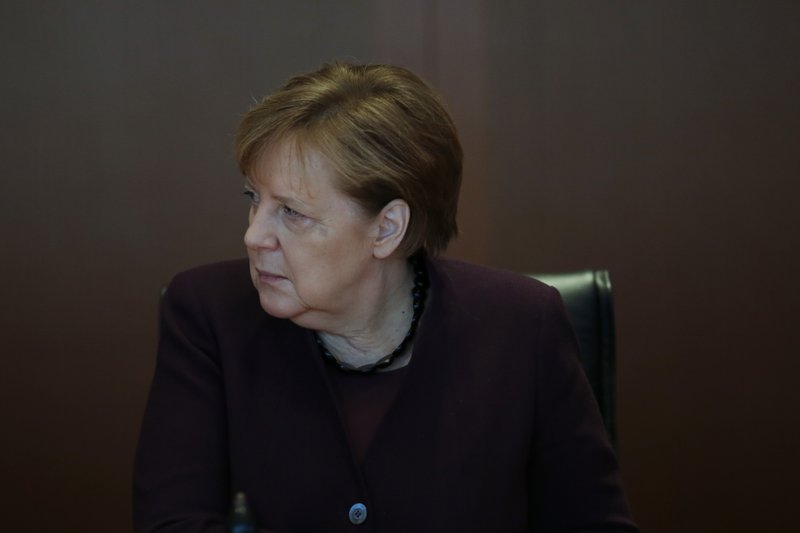
German Chancellor Angela Merkel attends the weekly cabinet meeting of the German government at the chancellery in Berlin, Wednesday, Jan. 29, 2020. (Photo: AP)
Germany and Austria are at odds over plans for a new tax on financial transactions, raising more questions about the chances of the levy becoming reality after years of talks.
The two countries are among 10 in the European Union that have been working on a financial transaction tax after a wider agreement proved elusive. German Finance Minister Olaf Scholz has proposed a levy of 0.2% on share purchases and wants to use the proceeds at home to help top up the pensions of low-paid people.
However, Austrian Chancellor Sebastian Kurz objects that the plan would spare highly speculative financial instruments and derivatives, and would instead hit small investors at a time when they are buying shares because bank interest rates are ultra-low.
“We are for the financial transaction tax as a tax on speculators, as was originally envisioned,” Kurz said after meeting German Chancellor Angela Merkel in Berlin on Monday. “But the current proposal by Finance Minister Scholz is one that we reject.”
Merkel said Germany regrets the Austrian position, noting that while many favor a financial transaction tax, pinning down details has proven difficult.
“We can of course keep talking — it just can’t be the case that, with a change, another five countries bail out,” Merkel said at a joint news conference. “So it’s a very difficult matter.”


